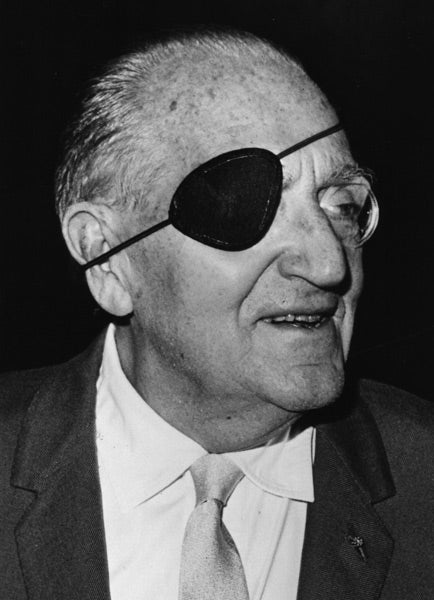Missing reels from Lang's 'Metropolis' discovered

Your support helps us to tell the story
From reproductive rights to climate change to Big Tech, The Independent is on the ground when the story is developing. Whether it's investigating the financials of Elon Musk's pro-Trump PAC or producing our latest documentary, 'The A Word', which shines a light on the American women fighting for reproductive rights, we know how important it is to parse out the facts from the messaging.
At such a critical moment in US history, we need reporters on the ground. Your donation allows us to keep sending journalists to speak to both sides of the story.
The Independent is trusted by Americans across the entire political spectrum. And unlike many other quality news outlets, we choose not to lock Americans out of our reporting and analysis with paywalls. We believe quality journalism should be available to everyone, paid for by those who can afford it.
Your support makes all the difference.A print of Fritz Lang's Metropolis has been found that includes almost a quarter of the silent film which was thought to have been lost.
After being edited out and, it was thought, lost in 1927, the missing scenes were found on three reels uncovered at a small cinema museum in the Argentinian capital, Buenos Aires, earlier this year. They were flown to Berlin this week and have now been authenticated by film historians.
Yesterday, Anke Wilkening, one of the team of historians, said all but one scene of the full version, last viewed in May 1927, had been rediscovered. "Almost everything that had been missing has been found, including two key scenes," she said.
Rainer Rother, another historian, said the discovery of the material, although not in perfect condition, meant that Germany's most significant and expensive silent film could be "seen through new eyes". Until now, Metropolis screenings had come with the warning: "More than a quarter of the film is believed to be lost forever."
Die Zeit published grainy, black-and-white stills yesterday which had been taken from the reels. They included crowd scenes, and images of Brigitte Helm, the heroine, gripped by fear and screaming as she tries to run from her pursuers.
Lang first screened the original version in Berlin in January 1927. Set in a futuristic vision of the German capital, the film portrays a corrupt and divided society in which the elite live in luxury while workers toil underground.
When the son of the city's ruler falls in love with a woman from the workers' underworld, a bitter and violent conflict erupts. Lang had intended the film to be an invective against Hollywood, but it flopped. It was panned by critics, ignored by audiences and savagely edited by Paramount, which owned the distribution rights.
Their new product was hardly better received. A German critic who had seen the original said the edited version had lost "nearly all its drama" and the writer H G Wells remarked after a showing: "I have just seen the most stupid of films."
The plot was simplified and pivotal scenes were edited out. Some 25 minutes of the original 150 were lost. Most historians assumed the edited footage had been dumped at Paramount's cutting rooms.
Yesterday, the fate of the missing scenes and their rediscovery was explained. Die Zeit revealed the role of Adolfo Z Wilson, the head of a film-distribution company called Terra, based in Buenos Aires. He had seen the original, preferred it, and was keen to show it in Argentina. He managed to buy a copy of the full version in 1928 and then chose to ignore his contractual obligation to destroy the print after it had been shown in cinemas.
Instead, he gave it to an Argentine film critic called Manuel Pena Rodriguez who later handed it on to the Argentine National Film Foundation. There, the reels were copied on to 16mm film. The new reels were given to the small Museo del Cine in 1992 but lay unnoticed in its archives until earlier this year. Credit for their discovery goes to Fernando Pena, a historian who first had an inkling that the original version was in circulation somewhere in the country after recalling a film-goer who had complained about viewing an "endless" version of Metropolis back in the 1980s.
Paradoxically, it was Mr Pena's former wife, Paula Felix-Didier, who led him to discover the whereabouts of the reels – she was appointed director of the Museo del Cine at the beginning of this year. The two found and viewed the museum's copy three months ago and were certain it was the original.
Ms Felix-Didier was in Berlin this week to show the reels to historians. Martin Körber, who restored the hitherto longest version of Metropolis and who examined the footage, said yesterday: "No matter how bad the condition of the material may be, the original intention of the film, including all of its minor characters and subplots, is now once again tangible for the normal viewer. The rhythm of the film has been restored."
The reels were returned to Buenos Aires on Wednesday, but the historians were unanimous yesterday in their view that a full-length version of Metropolis could be available for public viewing within months.
Join our commenting forum
Join thought-provoking conversations, follow other Independent readers and see their replies
Comments